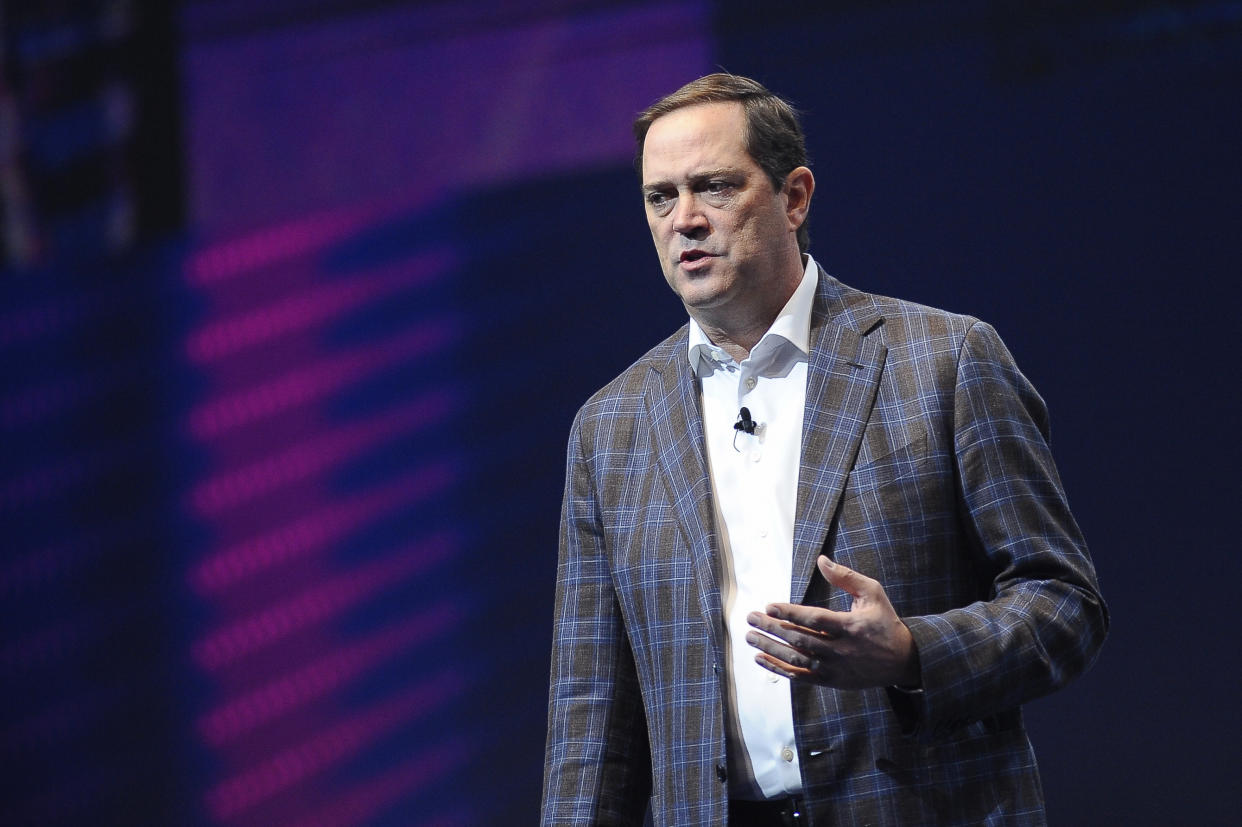Cisco CEO unveils one thing holding back firms from transforming the workforce

The role of a business chief executive far extends beyond buoying up a balance sheet and delivering profit for stakeholders. In fact, in the 21st century, they are under more scrutiny and held more accountable for helping the communities outside the business.
Speaking at a discussion, entitled “Leading a 21st century corporation,” at the World Economic Forum (WEF) in Davos, Switzerland, Chuck Robbins, chairman and CEO of IT giant Cisco Systems (CSCO) highlighted the social issues that huge corporations inadvertently play a part in creating and also have a responsibility in helping solve.
“Living in Silicon Valley, it really is a representation of what we’re talking about today. Teachers can’t afford to live, fire fighters can’t afford to live, San Jose has chronic homelessness,” he told delegates.
“If you visit the camps, and want to be close to the problem, you have people who have full time jobs who are living in a tent. You don’t have to go very far to see the problems that exist in our communities.”
More than 3,000 of the world’s most powerful leaders across business and politics have gathered at the WEF to discuss issues around “Stakeholders for a cohesive and sustainable world.”
He pointed out that companies have the scale and investment to help elevate communities around them and build a future workforce in a practical way that will benefit society as well as business.
READ MORE: Citi CEO's family story sums up why banks can't speed up tech advancements
Over the years, Cisco has been one of the world’s biggest companies that have set a gold standard for key initiatives to educate, train, and upskill people in its Networking Academy, which has the goal of training over two million people by the end of the year.
Robbins emphasised training people not only allows empowerment within the communities but for the company who has invested in them, they now have a whole range of people across the world who “love Cisco,” leading to “ambassadors” for the products and services. Plus, it’s likely top talent will get funnelled back into the company.
Cisco also committed $50m to tackle homelessness in Silicon Valley and, as Robbins pointed out, “Cisco was the first to do” such a thing — leading by example for other major firms globally.
But of course, all these initiatives require great investment in order to make a difference. And many companies are still struggling to balance immediate profitability with sinking millions into programmes that does not necessarily guarantee graduates will join the company.
It is for this reason Robbins delivered the one piece of advice and advocates, to get people to remove the mental barrier for executives that may still be on the fence:
“What I’ve been trying to tell people is that they need to realise you have to get involved with issues that you cannot draw a straight line to your business.”



